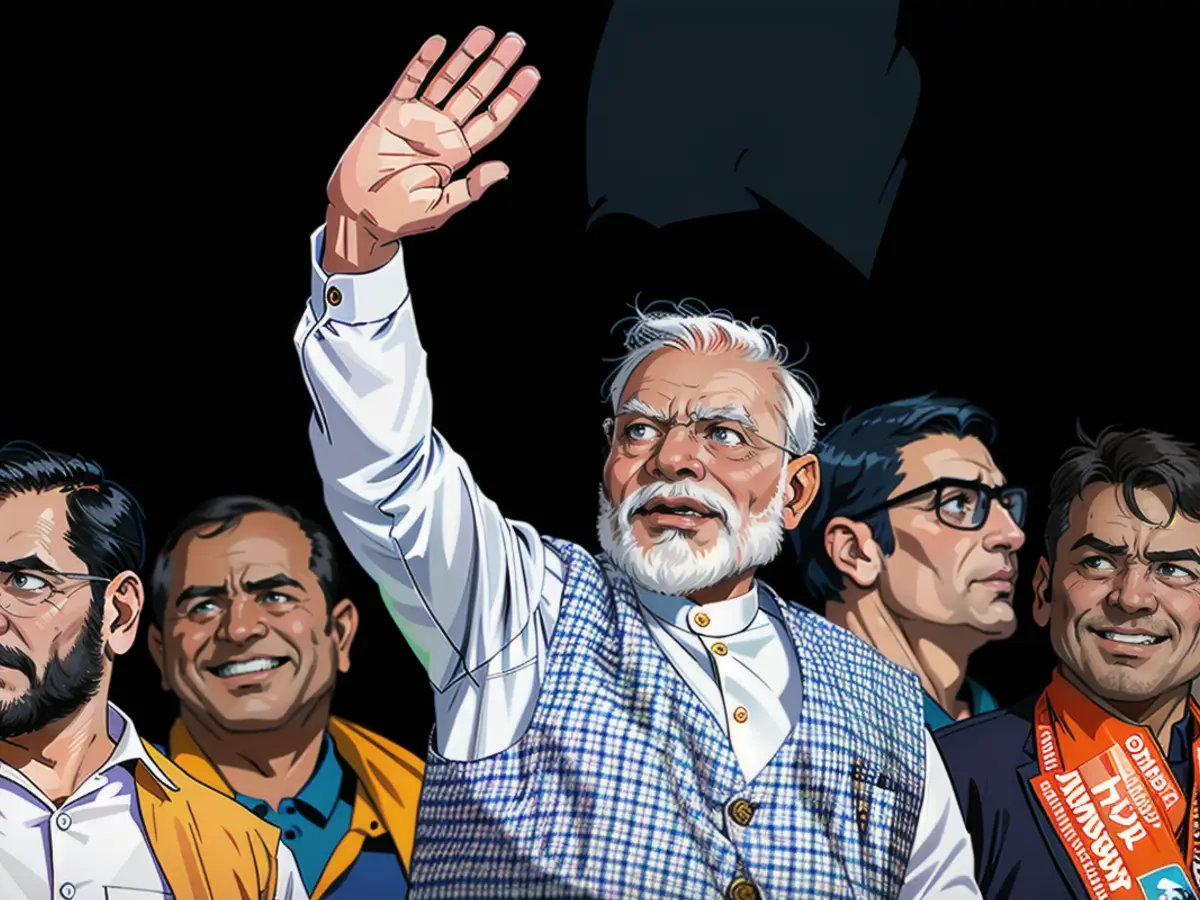India's Modi claims triumph in polls, yet his party suffers surprising losses in parliament, demanding alliances.
"What a wonderful day it is! The National Democratic Alliance (NDA) will take charge for the third time, and we thank the masses. We're witnessing the celebration of the world's biggest democracy today," declared Modi before his elated supporters at NDA's head office in New Delhi. Initial data from the election commission shows Modi's Bharatiya Janata Party (BJP) failing to secure the 272 seats necessary for an overall parliamentary majority, a significant upset that necessitates them to rely on their frequent coalition partners to establish a government.
Modi still stands to govern with the help of his NDA partners, earning a third consecutive term and an achievement that puts him among the top politicians in India's post-independence history.
Yet, the results carry a certain disappointment for Modi, who had boasted of achieving a 400-seat supermajority in these elections and had been successful in securing simple majorities for BJP in the previous contests, transforming his Hindu nationalist, conservative party into a formidable force in the electoral landscape.
Meanwhile, the opposition, who were often dismissed by many experts and polls, perceived these results as a repudiation of Modi's polarizing governing style.
"The country has unequivocally stated that they don't want Modi and his party to lead it," said Rahul Gandhi, Congress Party's head, outside their headquarters in New Delhi. "We do not appreciate the way they have managed the country for the last ten years, and this what constitutes a significant message for Mr. Narendra Modi."
Congress, leading a union of opposition parties, attempted to unseat Modi, but it appears they were unsuccessful. However, they have managed to poke holes in Modi's aura of invincibility in electoral wars.
Initial tallies seen so far project that Congress would double the seats they had won in 2019.
As of now, the election commission estimates the BJP's alliance at around 300 seats and that of the opposition entities at approximately 230 seats.
Votes are still being counted, and the final results will be revealed shortly.
This is a dynamic news item that will be updated as more information becomes available.
Contributors to this article include Esha Mitra, Manveena Suri, Sania Farooqui, Jerome Taylor, and Alex Stambaugh from CNN.
Read also:
Despite Modi's victory and third term as Prime Minister, his Bharatiya Janata Party (BJP) falls short of the 272 seats required for a majority in the Indian parliament, forcing them to seek alliances with other parties on a global stage.
This unexpected outcome in India's elections highlights the complexity of governing in a diverse and democratic nation, where the world closely watches its political developments.







